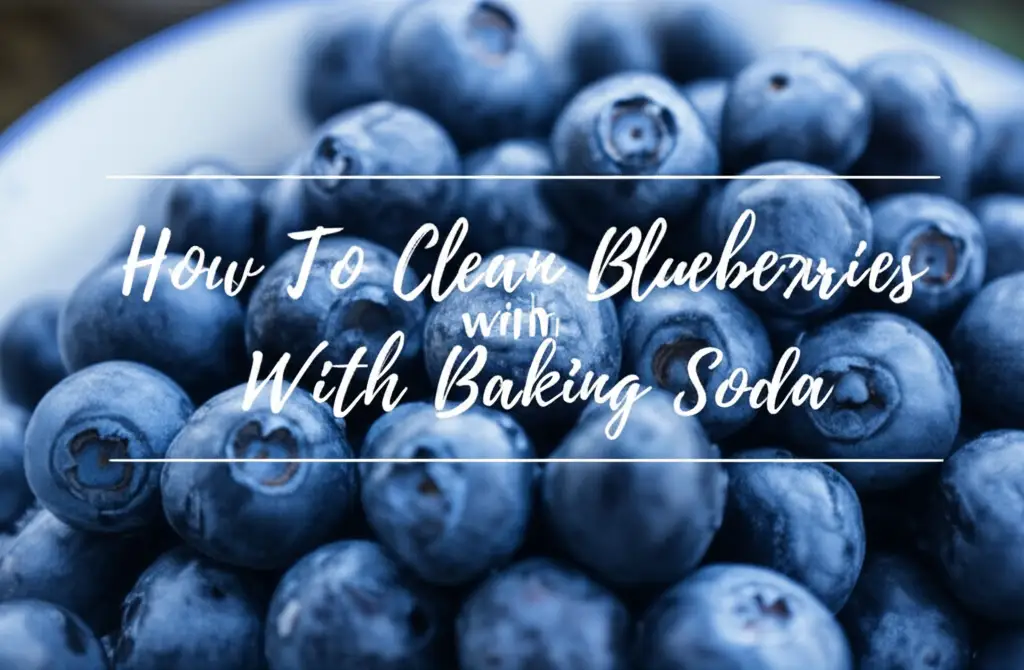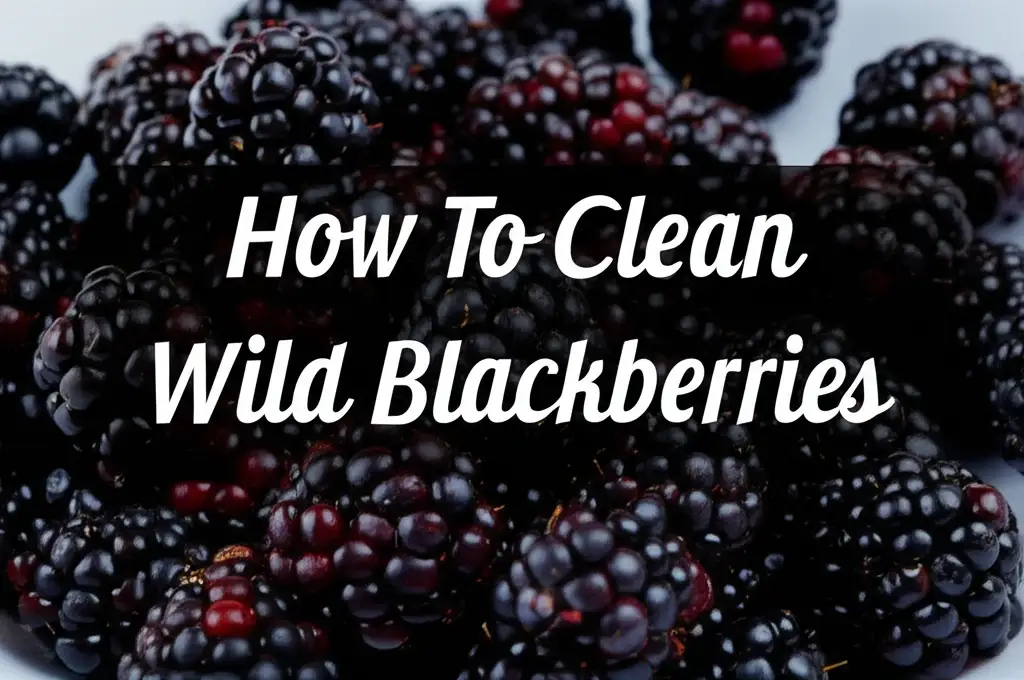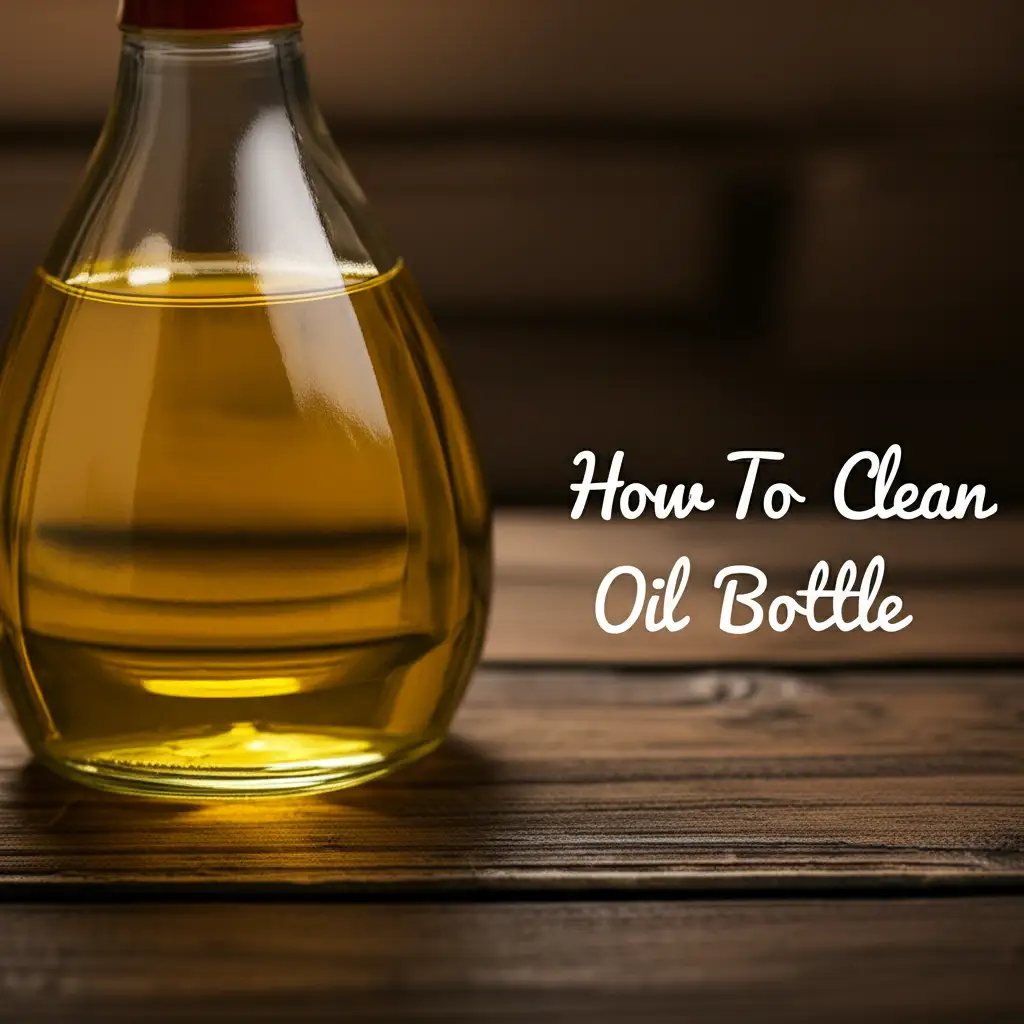· Food Cleaning · 13 min read
How To Clean Blackberries From Bugs

Clean Blackberries From Bugs: Your Essential Guide
There is nothing quite like biting into a fresh, juicy blackberry. These dark, sweet berries offer a delightful taste of summer. However, sometimes fresh produce brings uninvited guests. You might notice tiny bugs or larvae hidden within the crevices of your berries. Learning how to clean blackberries from bugs is a simple, yet essential skill.
Knowing how to properly wash your produce ensures food safety and a more enjoyable eating experience. Bugs are a natural part of growing fruit, especially when you pick them from your garden or buy them locally. This guide will show you easy, effective methods to get your blackberries perfectly clean. We will cover why bugs love these berries, what tools you need, and several washing techniques. Finally, we will talk about proper drying and storage to keep your clean berries fresh.
Takeaway
- Soak blackberries in water for 15-30 minutes to encourage bugs to exit.
- Use a gentle rinse under cool running water.
- Consider vinegar or salt water solutions for more stubborn bugs.
- Always dry berries thoroughly before storing them to prevent spoilage.
How do you clean bugs out of blackberries?
You can clean bugs out of blackberries effectively by soaking them in a large bowl of cool water for 15 to 30 minutes. The water forces insects to leave the berries. For more persistent bugs, a solution of water with a little vinegar or salt works well. After soaking, rinse the berries gently under cool, running water.
Why Bugs Love Blackberries: Understanding the Issue
Blackberries are naturally appealing to many small insects. Their sweet taste and moist environment create a perfect home. Tiny beetles, fruit flies, and spider mites often hide among the drupelets. These are the small, individual segments that make up a blackberry. Bugs also find shelter within the hollow core of some varieties. This presence is not a sign of bad farming or poor quality. It is a natural occurrence, especially with organic or wild berries.
Bugs are attracted to ripe fruit for food and shelter. They can be hard to see at first glance. Sometimes, you might not notice them until you start washing the fruit. Even if you do not see them, it is always a good idea to wash your berries. Washing removes not just bugs, but also dirt, dust, and residues. Knowing that bugs are common helps you approach the cleaning process with confidence. You are simply preparing your natural produce for consumption.
Many people wonder if these bugs are harmful. Generally, fruit bugs are not dangerous if accidentally eaten. They are annoying, though. Most people prefer their fruit bug-free. This is why a proper washing method is so important. We want to enjoy our berries without any unexpected protein additions.
Understanding why bugs like blackberries helps us choose the right cleaning method. Bugs want to escape water. This simple fact forms the basis of most effective cleaning techniques. We will use this principle to gently persuade them to leave your delicious fruit. A clean berry is a happy berry, and a happy eater.
Essential Tools for Bug-Free Blackberries
Getting your blackberries clean from bugs does not require special equipment. You likely have everything you need in your kitchen already. A large bowl is your most important tool. You will use it for soaking the berries. Make sure it is big enough to hold all your berries comfortably with plenty of water. A colander is also essential for draining the water easily. This allows you to rinse the berries without losing any.
You will also need a clean cloth or paper towels. These are for drying your berries after washing. Proper drying is crucial. Wet berries spoil much faster. I always keep a dedicated berry drying cloth handy. It is soft and absorbent.
For a vinegar or salt solution, you will need measuring spoons or cups. This helps you get the right concentration. Too much vinegar can affect the taste. Too little might not be effective. Water is, of course, the main ingredient. Use cool, fresh water. Tap water is usually fine.
Sometimes, a small plate or tray is useful. You can spread out your clean berries on it to air dry. This allows air circulation around each berry. Remember, gentle handling is key. Blackberries are delicate. You do not want to crush them during cleaning. Having these simple tools ready makes the process quick and easy.
- Large Bowl: For soaking the berries. Choose one that allows berries to float freely.
- Colander: For easy rinsing and draining. A fine-mesh colander prevents small berries from escaping.
- Clean Cloth or Paper Towels: For gentle drying. Avoid rough towels that might damage the berries.
- Measuring Spoons/Cups: If using vinegar or salt solutions. Precision helps.
- Cool Water: Essential for all washing methods.
- Optional Tray: For air drying berries in a single layer.
Having these items ready before you start saves time. It makes the cleaning process smooth and efficient.
The Classic Water Bath Method to Clean Blackberries
The simplest and often most effective way to clean blackberries from bugs is the classic water bath method. This method uses plain cool water. It relies on the bugs’ natural instinct to escape water. You will be surprised how well this works. I use this method frequently for all my garden berries.
First, gently place your blackberries into a large bowl. Do not overcrowd the bowl. Give them space to move around. Next, fill the bowl with cool tap water. Make sure all the berries are fully submerged. You might see some debris or bugs float to the top right away. This is a good sign the method is working.
Allow the berries to soak for about 15 to 30 minutes. During this time, bugs will typically crawl out of the berries. They will either float to the surface or sink to the bottom. After soaking, gently lift the berries out of the bowl. Do not pour the berries and water through a colander together. This would pour the bugs right back onto the fruit. Instead, use your hands or a slotted spoon to scoop the clean berries out.
Transfer the scooped berries into a colander. Rinse them very gently under cool, running water. This final rinse removes any remaining residue or floating bugs. The water bath is a mild approach. It does not alter the taste or texture of the berries. It is perfect for delicate fruits like blackberries. This method works well for most common berry pests.
Vinegar Soak: A Powerful Way to Clean Blackberries from Bugs
For a more powerful clean, especially if you suspect many bugs or want to remove pesticides, a vinegar soak is excellent. Vinegar is a natural disinfectant. It helps dislodge stubborn pests. It also cleans general grime from your fruit. I often use vinegar when cleaning things in my home, from glass surfaces to dishwashers. Using vinegar for cleaning berries is just as effective and safe.
To prepare the vinegar solution, mix one part white vinegar with three parts cool water in a large bowl. For example, if you use one cup of vinegar, add three cups of water. This creates a mild solution that is effective but won’t leave a vinegar taste on your berries. You can also use this ratio for how to clean mold with vinegar on other surfaces, showing its versatility.
Gently place your blackberries into the vinegar solution. Let them soak for about 10 to 15 minutes. During this time, the acidity of the vinegar encourages bugs to leave their hiding spots. You will often see small insects floating to the surface. Vinegar helps to kill or repel a wider range of pests than plain water. It is a good choice for berries from unknown sources.
After soaking, carefully lift the berries out of the vinegar water. Do not simply pour them out. Place them into a colander. Rinse the berries thoroughly under cool, running water for several minutes. This step is crucial. It removes any lingering vinegar smell or taste. Many people are surprised that properly rinsed berries do not taste like vinegar at all. This powerful cleaning method ensures your blackberries are truly bug-free and fresh for eating. Just like how to clean your shower with vinegar leaves it sparkling, this method leaves your berries spotless.
Salt Water Solution for Bug Removal
Another effective method to clean blackberries from bugs involves using a salt water solution. This option is particularly good for drawing out tiny larvae or worms that might be deeply embedded. Salt creates an environment bugs do not like. They will quickly try to escape it. This method is simple and uses common kitchen ingredients.
To make the salt solution, dissolve about one teaspoon of salt in four cups of cool water. Stir well to ensure the salt fully dissolves. You want a mild saline solution, not a strong brine. Too much salt can dehydrate the berries or affect their taste. This gentle concentration is usually enough to bother the insects.
Carefully add your blackberries to the salt water solution. Let them soak for approximately 20 to 30 minutes. You might notice little white specks or tiny larvae emerge and float to the surface. This is the salt working its magic. It irritates the bugs, causing them to abandon the fruit. I find this method very effective for wild-picked berries. These often have more hidden guests than store-bought ones.
After the soaking period, gently remove the berries from the salt water. Do not dump the solution. Transfer them into a colander. Rinse the blackberries thoroughly under cold, running water for a few minutes. Rinsing is important to remove any salt residue. You want to ensure your berries taste sweet, not salty. This method provides a powerful way to ensure your blackberries are completely clean.
This method is similar in principle to how one might deep clean other items where hidden elements might be present. For instance, while not for food, when people are cleaning tough spots like how to clean walls with vinegar, they aim to get into all crevices. The salt method similarly targets hidden bug locations.
Drying and Storing Your Clean Blackberries
Proper drying and storage are just as important as washing. Wet berries spoil very quickly. Excess moisture promotes mold growth and speeds up decay. You do not want all your cleaning effort to go to waste. Always make sure your blackberries are completely dry before storing them. I learned this the hard way many times.
After rinsing your blackberries, gently spread them out in a single layer on a clean kitchen towel or several layers of paper towels. Do not pile them up. Give each berry space to breathe. You can also use a salad spinner if you have one. Just be very gentle. Blackberries are delicate and can crush easily.
Let the berries air dry for at least 30 minutes to an hour. You can also pat them very gently with another clean, dry towel. Be extremely careful not to squish them. The goal is to remove all surface moisture. They should feel dry to the touch. This step is crucial for extending their shelf life.
Once dry, store your blackberries in a shallow, breathable container. Line the bottom of the container with a paper towel. This absorbs any residual moisture. Do not seal the container tightly. A slightly open lid or a container with air holes works best. This allows for air circulation. Place the container in your refrigerator. Properly dried and stored blackberries can last for several days. Enjoy your clean, bug-free berries!
Preventing Future Bug Infestations in Your Garden
Preventing bugs in your blackberry patch can reduce the need for intensive cleaning later. While some bugs are natural, good gardening practices help manage their numbers. Regular maintenance makes a big difference. I always try to take preventive steps.
First, consider companion planting. Certain plants naturally repel insects. For example, planting marigolds or chives near your blackberry bushes can deter some pests. This creates a natural barrier. It is a gentle way to protect your plants.
Maintain good garden hygiene. Remove any fallen or overripe berries from around the plants promptly. These fruits attract pests like fruit flies and ants. Cleaning up plant debris also helps. Bugs love to hide in decaying matter. Keeping the area tidy reduces their breeding grounds.
Prune your blackberry bushes regularly. This improves air circulation around the plants. It also removes old, less productive canes that might harbor pests. Good air flow makes the environment less appealing to many insects. It also helps prevent fungal diseases.
Consider using natural pest control methods if infestations become severe. Neem oil sprays can deter many types of soft-bodied insects. Diatomaceous earth can be sprinkled around the base of plants. Always use products approved for edible plants. Follow instructions carefully. These preventive measures reduce the number of bugs that end up on your delicious blackberries. This makes your cleaning job much easier. Regular checks of your plants help you spot problems early.
FAQ Section
Q1: Do all blackberries have bugs? A1: Not all blackberries have visible bugs, but it is common for small insects or their larvae to be present. This is especially true for organic or wild-picked berries. Bugs are a natural part of the growing process. Washing your berries is always a good practice. It removes dirt, dust, and any unseen pests.
Q2: Can I eat blackberries with bugs in them? A2: Accidentally eating small fruit bugs or larvae from blackberries is generally not harmful. They are not known to carry human diseases. However, most people prefer to remove them for aesthetic and personal preference reasons. Proper washing ensures a more enjoyable eating experience.
Q3: How long can clean blackberries be stored? A3: Clean and thoroughly dried blackberries can be stored in the refrigerator for 3-5 days. Always store them in a shallow, breathable container lined with a paper towel. Avoid washing them until you are ready to eat them if you want to store them longer. Moisture makes them spoil faster.
Q4: Can I freeze blackberries after cleaning them from bugs? A4: Yes, you can freeze blackberries after cleaning them from bugs. Make sure they are completely dry before freezing. Spread them in a single layer on a baking sheet. Freeze until solid. Then transfer them to a freezer-safe bag or container. This prevents them from sticking together.
Q5: Is it safe to use dish soap to clean blackberries? A5: No, it is not recommended to use dish soap or other household cleaners on blackberries. These products can leave residues on the fruit. These residues are not meant for consumption. Stick to water, vinegar, or salt solutions for cleaning edible produce.
Q6: What type of vinegar is best for cleaning blackberries? A6: Plain white distilled vinegar is best for cleaning blackberries. It is inexpensive and has a neutral taste once rinsed off. Do not use apple cider vinegar or balsamic vinegar, as they can impart a flavor or color to the berries. White vinegar is the safest choice.
Conclusion
Cleaning blackberries from bugs is a simple and rewarding process. It ensures your fresh, sweet fruit is ready for eating. We discussed why bugs love these berries and the essential tools you need. We covered effective methods like the classic water bath, the powerful vinegar soak, and the salt water solution. Each method offers a reliable way to get rid of unwanted guests. Remember, proper drying and storage are also key to keeping your clean berries fresh.
Taking a few extra minutes to wash your blackberries makes a big difference. It gives you peace of mind and improves the overall enjoyment of your delicious fruit. Now you have the knowledge to confidently clean blackberries from bugs. Go enjoy your harvest. You can pick them, wash them, and savor every bite. Get started on cleaning your berries today. Your taste buds will thank you.
- blackberry cleaning
- berry care
- removing bugs from fruit
- fruit washing
- pest removal
- safe eating
- kitchen hacks




